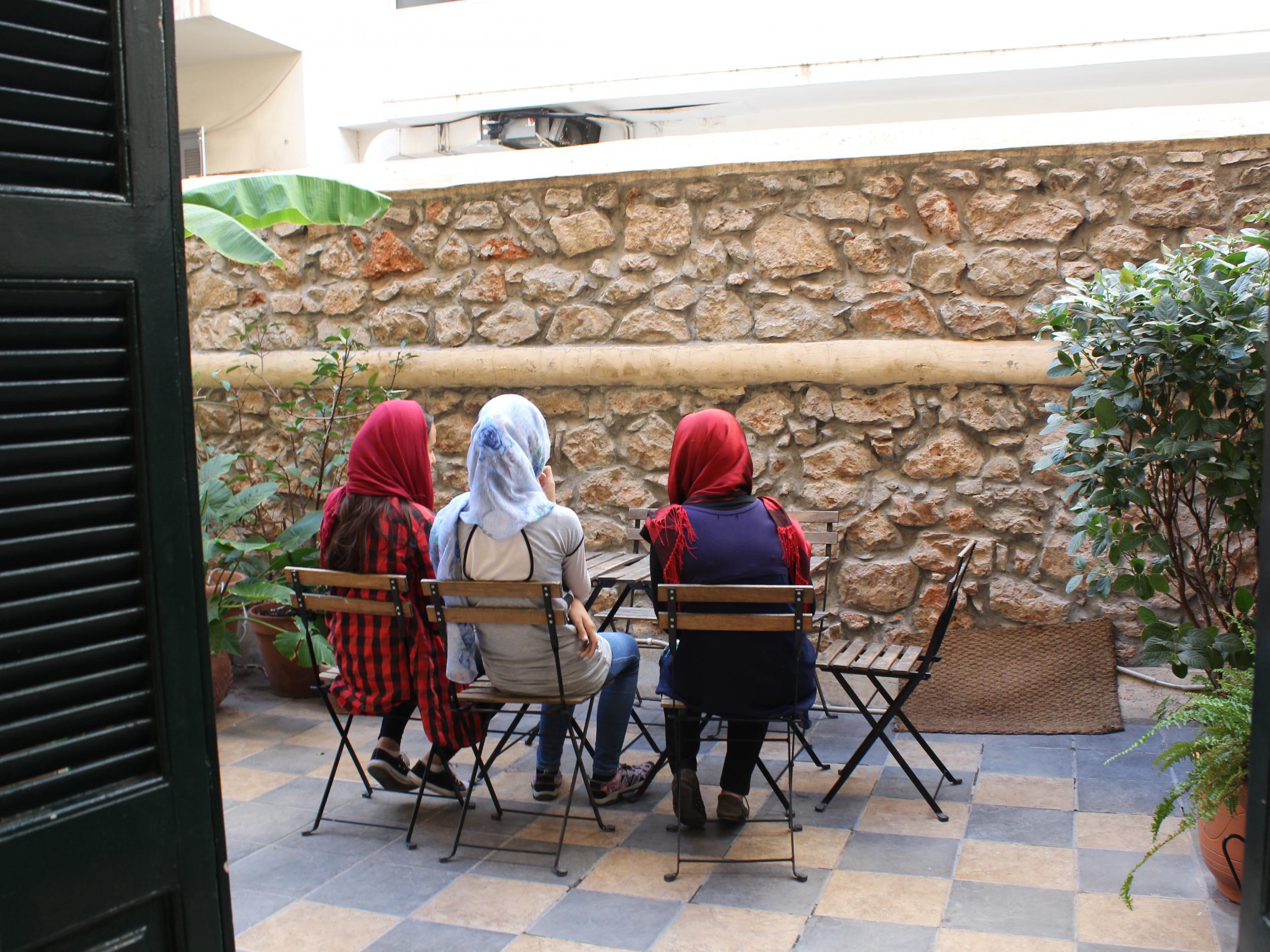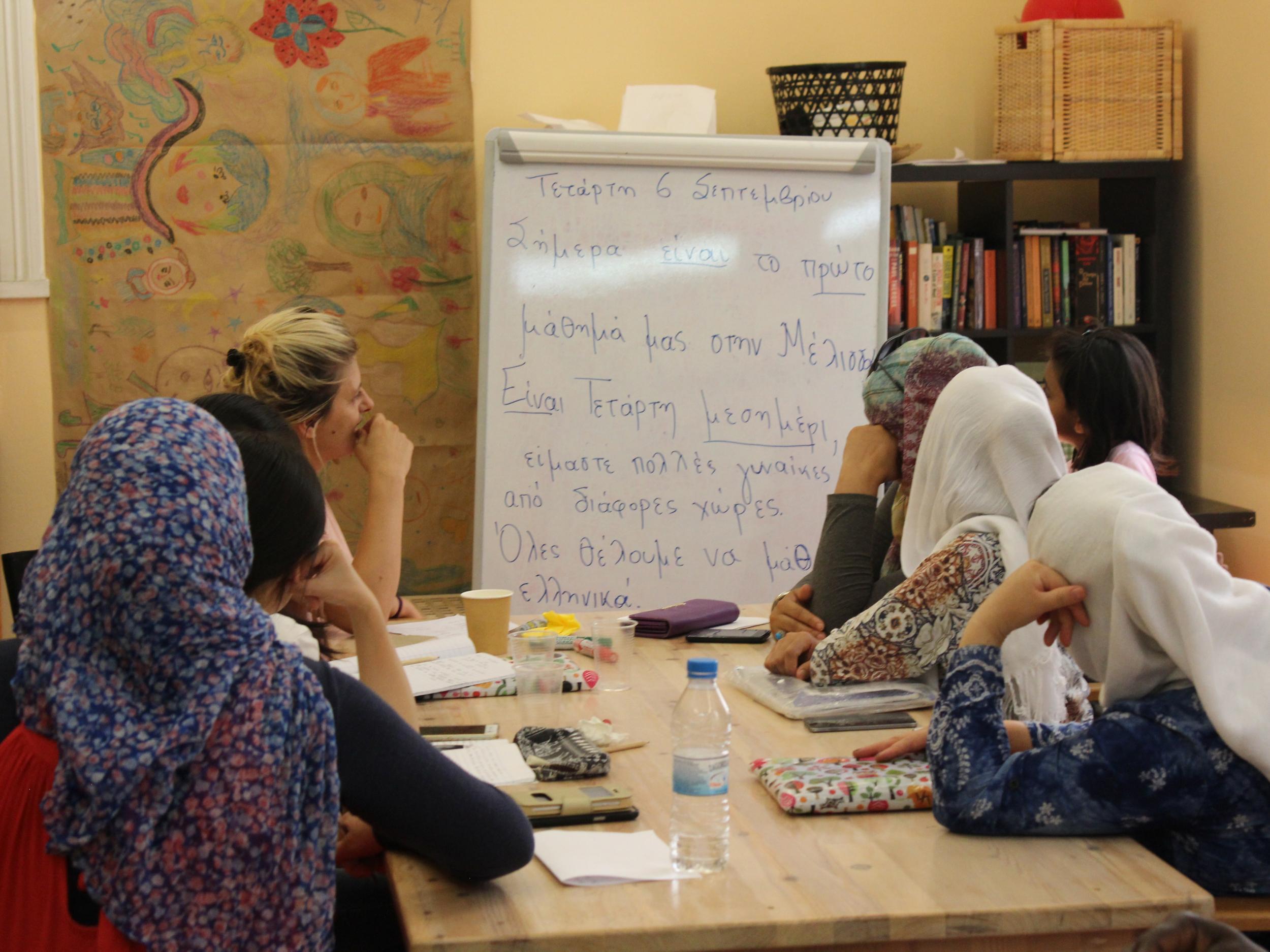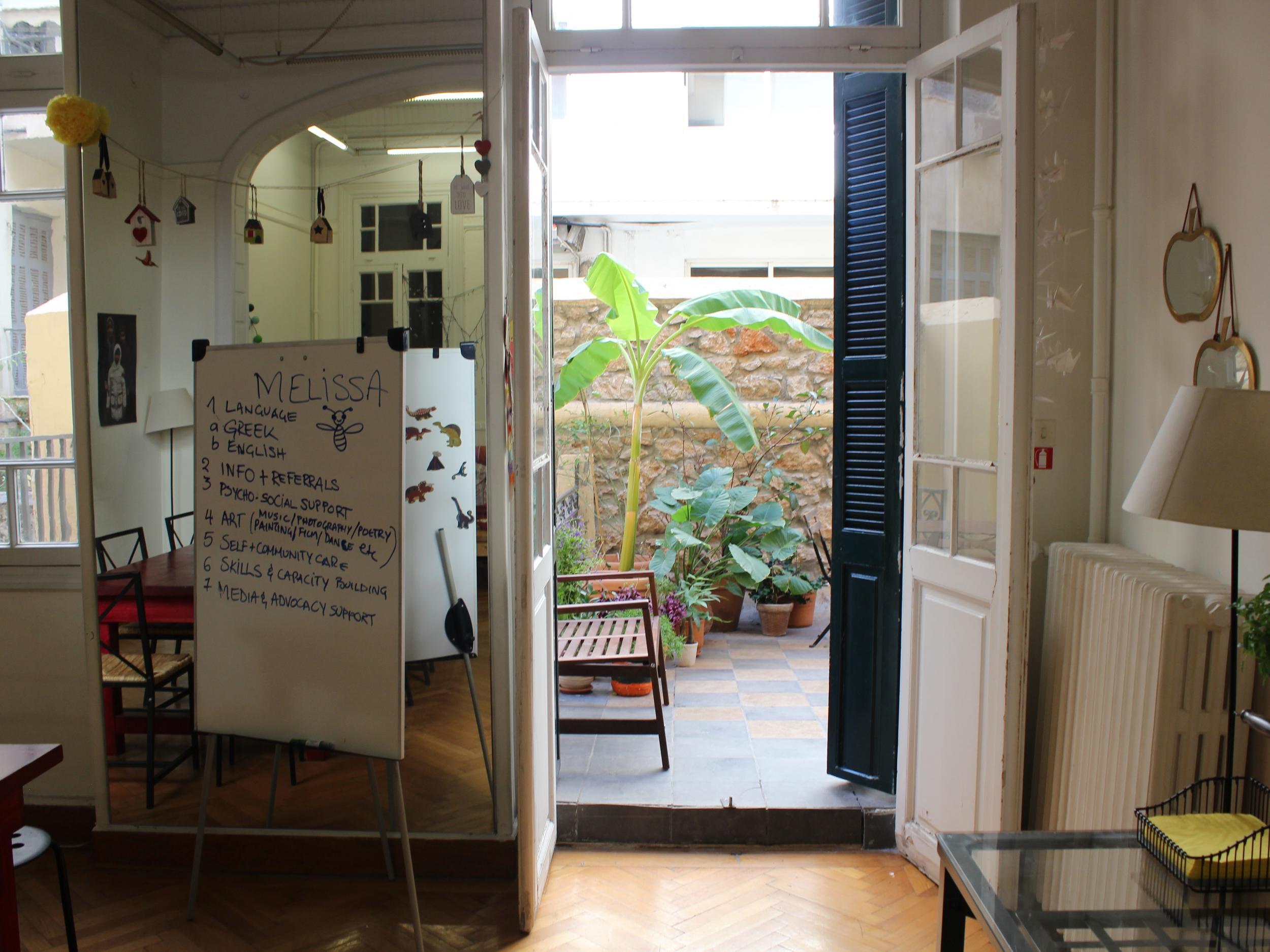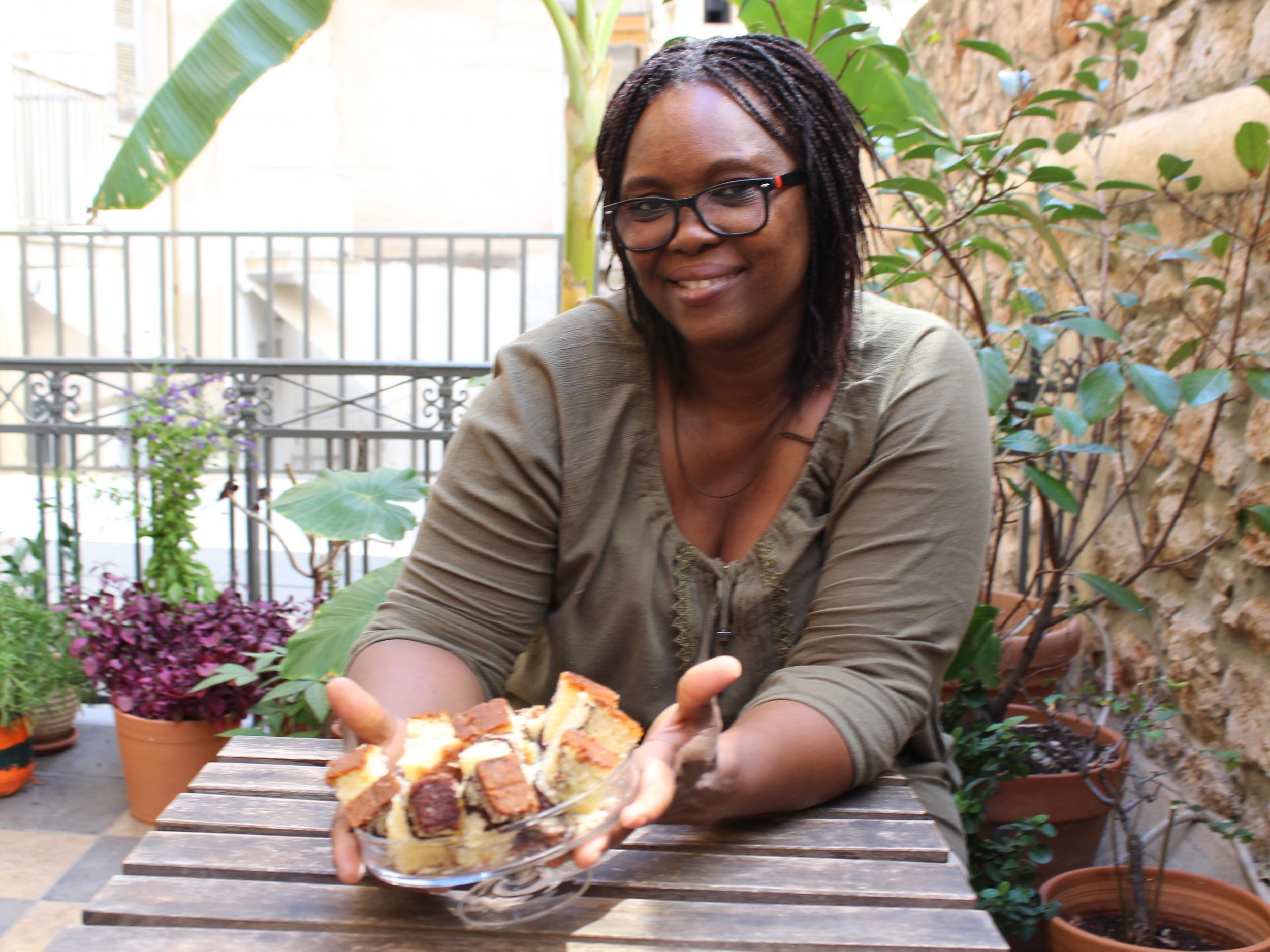Migrant women help female refugees build new lives in Athens
A sanctuary run by migrant women in Greece’s capital is teaching female refugees how to code, speak Greek, find employment – and fight for their rights in court

Tucked away on a busy street in the heart of Athens, the door to the Melissa Network is always open. Today the women’s refuge is buzzing with activity.
Recently arrived refugee women are being taught how to code, speak Greek, develop leadership skills – and even how to decipher fake news.
In one room students sit around a table speaking passionately in a symphony of languages: Greek, Arabic and English.
“It’s a class on women’s rights,” says Andrea Borja, a staff member at the Melissa Network.
The not-for-profit opened in July 2016 and has become a home away from home for women from the Middle East and Africa. Most of the women here have made difficult journeys from Syria, Afghanistan, Iran, Somalia and a host of other countries.
Melissa is known as one of the few organisations in Athens catering specifically to refugee women. It’s also run by women who came to the Greek capital as migrants themselves.

“For us, integration and empowerment had to be the focus,” says Nadina Christopoulou – a Greek anthropologist and co-founder of Melissa Foundation. She hesitates before adding: “We see a high rate of divorce here.”
Melissa means “honey bee” in Greek, says Christopoulou. In beehives, the worker bees are always female so the name is a metaphor for women’s empowerment.
Few organisations in Athens have the resources to address sexual and gender-based violence that can affect female refugees, Christopoulou adds. As a result, victims are failing to receive the support they need when they arrive in Greece.
“You see women coming in here with broken wings. They have faced so many challenges. But within the span of one or two weeks here you start to see new personalities emerging,” the organisation co-founder says.
Christopoulou says many Melissa members who attend the centre’s women’s rights classes are shocked to learn that some of the experiences they have endured – in particular, sexual violence and physical abuse – have been in violation of their own rights. Many, she adds, end up wanting to take cases of abuse to court.
“Around the world, at least one in every three women has been beaten, coerced into sex, or otherwise abused in her lifetime,” the UN’s High Commissioner for Refugees has said in a report. “Refugees and internally displaced people who do not enjoy the protection of their own governments, are among those most vulnerable to acts of violence, including sexual and gender-based violence.”
One woman, who fled violence in Laos and arrived in Athens almost exactly one year ago says Melissa has been a lifeline.

“It was terrible,” she says. “I came here by myself. I felt so afraid.” A gynaecologist by training, she now helps provide care to other women who visit the organisation.
She had few contacts in Athens when she arrived and felt isolated after having to cut off contact with her own family Laos – but at Melissa, she’s forged new connections and has been able to help women in the local community.
“Here, I’ve met so many people. We are like a family,” she says.
A group of teenage girls chatting after a lunch the centre offers to all of its members say they couldn’t agree more.
Sita, 14, and her older sister Gita, 17, met 14-year-old Fatima at Melissa six months ago.
The girls lived in Iran where they were refugees from Afghanistan but were faced with barriers to education – and socialising.
“I couldn’t have any friends, or relationships [in Iran],” Fatima says through an interpreter. “I was tailoring clothes.”
Iranian authorities have made efforts in recent years to connect Afghan children with education, but many families continue to face obstacles that prevent their children from attending school, according to Human Rights Watch.

In Athens, Fatima says she has been given a new chance to go to school and make friends through Melissa – an opportunity she says her parents are grateful for.
Gita and Sita say after making the difficult journey from Iran to Turkey by car and then travelling by boat from Turkey to the Greek Islands before finally arriving in Athens, they no longer care about where they are, as long as they are safe with their family.
“I don’t have different feelings,” Gita says. “My feeling is the same as when we decided to come to Europe.”
All three girls, however, are optimistic about their future in Greece. Fatima says she wants to be an actor – and if that doesn’t work out, she’s also interested in becoming a nurse. Gita wants to own her own tailor shop, while Sita hopes to pursue her dreams as a singer.
Melissa Network aims to encourage girls and women to pursue employment opportunities and follow their ambitions. The network itself employs more than 15 refugee women to help them gain work experience. It also runs regular CV workshops and helps to connect women with work in Athens.
“They come here with so many skills, talents and dreams and you can tap into all that as an organisation and as a society – but first, you have to provide the basics,” says Christopoulou.
That’s why the organisation is also going one step further by launching a new entrepreneurship programme to help refugee women start their own local businesses.
Nigerian chef Maria Ohilebo, a co-founder of Melissa came to Greece more than 20 years ago. She cooks traditional lunch dishes for the women and girls every day. Ohilebo plans to open a pastry and cookery shop through the new entrepreneurship programme that will employ refugee women through Melissa.

She says the programme’s success still depends on funding, but that she is optimistic. While Melissa does work closely with the Athens municipality, it does not rely on state support, which its organisers say allows it to be more “independent”.
Ohilebo said there are opportunities for newcomers to Greece – but that they have to be patient – because often migrants want to flee to “the big names like Canada or England”.
“I believe there are opportunities here and I believe the Greeks are beginning to open up more and are welcoming people,” she said.
Nearly 45,000 refugees and migrants are currently living in Greece, according to the UN – and that number continues to rise, with nearly 3,700 refugees having arrived in August alone.
Melissa co-founders say they hope to see more services and support for the specific needs of refugee women hoping to build new lives in Greece.
“We have zero drop-out rates here. They only leave [Melissa Network] if they have to leave Athens. And the number keeps on growing higher,” says Christopoulou.
“It’s a challenge... but it’s also something that makes us very happy.”
Join our commenting forum
Join thought-provoking conversations, follow other Independent readers and see their replies
Comments
Bookmark popover
Removed from bookmarks